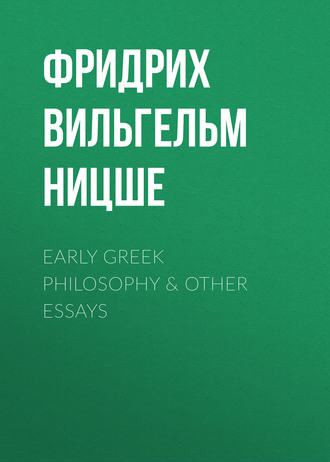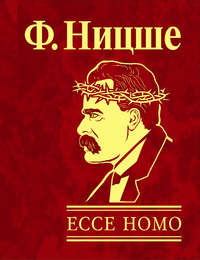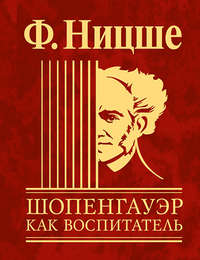 полная версия
полная версияEarly Greek Philosophy & Other Essays
7
That dangerous word, Hybris, is indeed the touchstone for every Heraclitean; here he may show whether he has understood or mistaken his master. Is there in this world: Guilt, injustice, contradiction, suffering?
Yes, exclaims Heraclitus, but only for the limited human being, who sees divergently and not convergently, not for the contuitive god; to him everything opposing converges into one harmony, invisible it is true to the common human eye, yet comprehensible to him who like Heraclitus resembles the contemplative god. Before his fiery eye no drop of injustice is left in the world poured out around him, and even that cardinal obstacle – how pure fire can take up its quarters in forms so impure – he masters by means of a sublime simile. A Becoming and Passing, a building and destroying, without any moral bias, in perpetual innocence is in this world only the play of the artist and of the child. And similarly, just as the child and the artist play, the eternally living fire plays, builds up and destroys, in innocence – and this game the Æon plays with himself. Transforming himself into water and earth, like a child he piles heaps of sand by the sea, piles up and demolishes; from time to time he recommences the game. A moment of satiety, then again desire seizes him, as desire compels the artist to create. Not wantonness, but the ever newly awakening impulse to play, calls into life other worlds. The child throws away his toys; but soon he starts again in an innocent frame of mind. As soon however as the child builds he connects, joins and forms lawfully and according to an innate sense of order.
Thus only is the world contemplated by the æsthetic man, who has learned from the artist and the genesis of the latter's work, how the struggle of plurality can yet bear within itself law and justice, how the artist stands contemplative above, and working within the work of art, how necessity and play, antagonism and harmony must pair themselves for the procreation of the work of art.
Who now will still demand from such a philosophy a system of Ethics with the necessary imperatives – Thou Shalt, – or even reproach Heraclitus with such a deficiency. Man down to his last fibre is Necessity and absolutely "unfree " – if by freedom one understands the foolish claim to be able to change at will one's essentia like a garment, a claim, which up to the present every serious philosophy has rejected with due scorn. That so few human beings live with consciousness in the Logos and in accordance with the all-overlooking artist's eye originates from their souls being wet and from the fact that men's eyes and ears, their intellect in general is a bad witness when "moist ooze fills their souls." Why that is so, is not questioned any more than why fire becomes water and earth. Heraclitus is not compelled to prove (as Leibnitz was) that this world was even the best of all; it was sufficient for him that the world is the beautiful, innocent play of the Æon. Man on the whole is to him even an irrational being, with which the fact that in all his essence the law of all-ruling reason is fulfilled does lot clash. He does not occupy a specially favoured position in nature, whose highest phenomenon is not simple-minded man, but fire, for instance, as stars. In so far as man has through necessity received a share of fire, he is a little more rational; as far as he consists of earth and water it stands badly with his reason. He is not compelled to take cognisance of the Logos simply because he is a human being. Why is there water, why earth? This to Heraclitus is a much more serious problem than to ask, why men are so stupid and bad. In the highest and the most perverted men the same inherent lawfulness and justice manifest themselves. If however one would ask Heraclitus the question "Why is fire not always fire, why is it now water, now earth?" then he would only just answer: "It is a game, don't take it too pathetically and still less, morally." Heraclitus describes only the existing world and has the same contemplative pleasure in it which the artist experiences when looking at his growing work. Only those who have cause to be discontented with his natural history of man find him gloomy, melancholy, tearful, sombre, atrabilarious, pessimistic and altogether hateful. He however would take these discontented people, together with their antipathies and sympathies, their hatred und their love, as negligible and perhaps answer them with some such comment as: "Dogs bark at anything they do not know," or, "To the ass chaff is preferable to gold."
With such discontented persons also originate the numerous complaints as to the obscurity of the Heraclitean style; probably no man has ever written clearer and more illuminatingly; of course, very abruptly, and therefore naturally obscure to the racing readers. But why a philosopher should intentionally write obscurely – a thing habitually said about Heraclitus – is absolutely inexplicable; unless he has some cause to hide his thoughts or is sufficiently a rogue to conceal his thoughtlessness underneath words. One is, as Schopenhauer says, indeed compelled by lucid expression to prevent misunderstandings even in affairs of practical every-day life, how then should one be allowed to express oneself indistinctly, indeed puzzlingly in the most difficult, most abstruse, scarcely attainable object of thinking, the tasks of philosophy? With respect to brevity however Jean Paul gives a good precept: "On the whole it is right that everything great – of deep meaning to a rare mind – should be uttered with brevity and (therefore) obscurely so that the paltry mind would rather proclaim it to be nonsense than translate it into the realm of his empty-headedness. For common minds have an ugly ability to perceive in the deepest and richest saying nothing but their own every-day opinion." Moreover and in spite of it Heraclitus has not escaped the "paltry minds"; already the Stoics have "re-expounded" him into the shallow and dragged down his æsthetic fundamental-perception as to the play of the world to the miserable level of the common regard for the practical ends of the world and more explicitly for the advantages of man, so that out of his Physics has arisen in those heads a crude optimism, with the continual invitation to Dick, Tom, and Harry, "Plaudite amici!"
8
Heraclitus was proud; and if it comes to pride with a philosopher then it is a great pride. His work never refers him to a "public," the applause of the masses and the hailing chorus of contemporaries. To wander lonely along his path belongs to the nature of the philosopher. His talents are the most rare, in a certain sense the most unnatural and at the same time exclusive and hostile even toward kindred talents. The wall of his self-sufficiency must be of diamond, if it is not to be demolished and broken, for everything is in motion against him. His journey to immortality is more cumbersome and impeded than any other and yet nobody can believe more firmly than the philosopher that he will attain the goal by that journey – because he does not know where he is to stand if not on the widely spread wings of all time; for the disregard of everything present and momentary lies in the essence of the great philosophic nature. He has truth; the wheel of time may roll whither it pleases, never can it escape from truth. It is important to hear that such men have lived. Never for example would one be able to imagine the pride of Heraclitus as an idle possibility. In itself every endeavour after knowledge seems by its nature to be eternally unsatisfied and unsatisfactory. Therefore nobody unless instructed by history will like to believe in such a royal self-esteem and conviction of being the only wooer of truth. Such men live in their own solar-system – one has to look for them there. A Pythagoras, an Empedocles treated themselves too with a super-human esteem, yea, with almost religious awe; but the tie of sympathy united with the great conviction of the metempsychosis and the unity of everything living, led them back to other men, for their welfare and salvation. Of that feeling of solitude, however, which permeated the Ephesian recluse of the Artemis Temple, one can only divine something, when growing benumbed in the wildest mountain desert. No paramount feeling of compassionate agitation, no desire to help, heal and save emanates from him. He is a star without an atmosphere. His eye, directed blazingly inwards, looks outward, for appearance's sake only, extinct and icy. All around him, immediately upon the citadel of his pride beat the waves of folly and perversity: with loathing he turns away from them. But men with a feeling heart would also shun such a Gorgon monster as cast out of brass; within an out-of-the-way sanctuary, among the statues of gods, by the side of cold composedly-sublime architecture such a being may appear more comprehensible. As man among men Heraclitus was incredible; and though he was seen paying attention to the play of noisy children, even then he was reflecting upon what never man thought of on such an occasion: the play of the great world-child, Zeus. He had no need of men, not even for his discernments. He was not interested in all that which one might perhaps ascertain from them, and in what the other sages before him had been endeavouring to ascertain. He spoke with disdain of such questioning, collecting, in short "historic" men. "I sought and investigated myself," he said, with a word by which one designates the investigation of an oracle; as if he and no one else were the true fulfiller and achiever of the Delphic precept: "Know thyself."
What he learned from this oracle, he deemed immortal wisdom, and eternally worthy of explanation, of unlimited effect even in the distance, after the model of the prophetic speeches of the Sibyl. It is sufficient for the latest mankind: let the latter have that expounded to her, as oracular sayings, which he like the Delphic god "neither enunciates nor conceals." Although it is proclaimed by him, "without smiles, finery and the scent of ointments," but rather as with "foaming mouth," it must force its way through the millenniums of the future. For the world needs truth eternally, therefore she needs also Heraclitus eternally; although he has no need of her. What does his fame matter to him?– fame with "mortals ever flowing on!" as he exclaims scornfully. His fame is of concern to man, not to himself; the immortality of mankind needs him, not he the immortality of the man Heraclitus. That which he beheld, the doctrine of the Law in the Becoming, and of the Play in the Necessity, must henceforth be beheld eternally; he has raised the curtain of this greatest stage-play.
9
Whereas in every word of Heraclitus are expressed the pride and the majesty of truth, but of truth caught by intuitions, not scaled by the rope-ladder of Logic, whereas in sublime ecstasy he beholds but does not espy, discerns but does not reckon, he is contrasted with his contemporary Parmenides, a man likewise with the type of a prophet of truth, but formed as it were out of ice and not out of fire, and shedding around himself cold, piercing light.
Parmenides once had, probably in his later years, a moment of the very purest abstraction, undimmed by any reality, perfectly lifeless; this moment – un-Greek, like no other in the two centuries of the Tragic Age – the product of which is the doctrine of "Being," became a boundary-stone for his own life, which divided it into two periods; at the same time however the same moment divides the pre-Socratic thinking into two halves, of which the first might be called the Anaximandrian, the second the Parmenidean. The first period in Parmenides' own philosophising bears still the signature of Anaximander; this period produced a detailed philosophic-physical system as answer to Anaximander's questions. When later that icy abstraction-horror caught him, and the simplest proposition treating of "Being" and "Not-Being" was advanced by him, then among the many older doctrines thrown by him upon the scrap heap was also his own system. However he does not appear to have lost all paternal piety towards the strong and well-shapen child of his youth, and he saved himself therefore by saying: "It is true there is only one right way; if one however wants at any time to betake oneself to another, then my earlier opinion according to its purity and consequence alone is right." Sheltering himself with this phrase he has allowed his former physical system a worthy and extensive space in his great poem on Nature, which really was to proclaim the new discernment as the only signpost to truth. This fatherly regard, even though an error should have crept in through it, is a remainder of human feeling, in a nature quite petrified by logical rigidity and almost changed into a thinking-machine.
Parmenides, whose personal intercourse with Anaximander does not seem incredible to me, and whose starting from Anaximander's doctrine is not only credible but evident, had the same distrust for the complete separation of a world which only is, and a world which only becomes, as had also caught Heraclitus and led to a denying of "Being" altogether. Both sought a way out from that contrast and divergence of a dual order of the world. That leap into the Indefinite, Indefinable, by which once for all Anaximander had escaped from the realm of Becoming and from the empirically given qualities of such realm, that leap did not become an easy matter to minds so independently fashioned as those of Heraclitus and Parmenides; first they endeavoured to walk as far as they could and reserved to themselves the leap for that place, where the foot finds no more hold and one has to leap, in order not to fall. Both looked repeatedly at that very world, which Anaximander had condemned in so melancholy a way and declared to be the place of wanton crime and at the same time the penitentiary cell for the injustice of Becoming. Contemplating this world Heraclitus, as we know already, had discovered what a wonderful order, regularity and security manifest themselves in every Becoming; from that he concluded that the Becoming could not be anything evil and unjust. Quite a different outlook had Parmenides; he compared the qualities one with another, and believed that they were not all of the same kind, but ought to be classified under two headings. If for example he compared bright and dark, then the second quality was obviously only the negation of the first; and thus he distinguished positive and negative qualities, seriously endeavouring to rediscover and register that fundamental antithesis in the whole realm of Nature. His method was the following: He took a few antitheses, e. g., light and heavy, rare and dense, active and passive, and compared them with that typical antithesis of bright and dark: that which corresponded with the bright was the positive, that which corresponded with the dark the negative quality. If he took perhaps the heavy and light, the light fell to the side of the bright, the heavy to the side of the dark; and thus "heavy" was to him only the negation of "light," but the "light" a positive quality. This method alone shows that he had a defiant aptitude for abstract logical procedure, closed against the suggestions of the senses. The "heavy" seems indeed to offer itself very forcibly to the senses as a positive quality; that did not keep Parmenides from stamping it as a negation. Similarly he placed the earth in opposition to the fire, the "cold" in opposition to the "warm," the "dense" in opposition to the "rare," the "female" in opposition to the "male," the "passive" in opposition to the "active," merely as negations: so that before his gaze our empiric world divided itself into two separate spheres, into that of the positive qualities – with a bright, fiery, warm, light, rare, active-masculine character – and into that of the negative qualities. The latter express really only the lack, the absence of the others, the positive ones. He therefore described the sphere in which the positive qualities are absent as dark, earthy, cold, heavy, dense and altogether as of feminine-passive character. Instead of the expressions "positive" and "negative" he used the standing term "existent" and "non-existent" and had arrived with this at the proposition, that, in contradiction to Anaximander, this our world itself contains something "existent," and of course something "non-existent." One is not to seek that "existent" outside the world and as it were above our horizon; but before us, and everywhere in every Becoming, something "existent" and active is contained.
With that however still remained to him the task of giving the more exact answer to the question: What is the Becoming? and here was the moment where he had to leap, in order not to fall, although perhaps to such natures as that of Parmenides, even any leaping means a falling. Enough! we get into fog, into the mysticism of qualitates occultæ, and even a little into mythology. Parmenides, like Heraclitus, looks at the general Becoming and Not-remaining and explains to himself a Passing only thus, that the "Non-Existent" bore the guilt. For how should the "Existent" bear the guilt of Passing? Likewise, however, the Originating, i.e., the Becoming, must come about through the assistance of the "Non-Existent"; for the "Existent" is always there and could not of itself first originate and it could not explain any Originating, any Becoming. Therefore the Originating, the Becoming as well as the Passing and Perishing have been brought about by the negative qualities. But that the originating "thing" has a content, and the passing "thing" loses a content, presupposes that the positive qualities – and that just means that very content – participate likewise in both processes. In short the proposition results: "For the Becoming the 'Existent' as well as the 'Non-Existent' is necessary; when they co-operate then a Becoming results." But how come the "positive" and the "negative" to one another? Should they not on the contrary eternally flee one another as antitheses and thereby make every Becoming impossible? Here Parmenides appeals to a qualitas occulta, to a mystic tendency of the antithetical pairs to approach and attract one another, and he allegorises that peculiar contrariety by the name of Aphrodite, and by the empirically known relation of the male and female principle. It is the power of Aphrodite which plays the matchmaker between the antithetical pair, the "Existent" and the "Non-Existent." Passion brings together the antagonistic and antipathetic elements: the result is a Becoming. When Desire has become satiated, Hatred and the innate antagonism again drive asunder the "Existent" and the "Non-Existent" – then man says: the thing perishes, passes.
10
But no one with impunity lays his profane hands on such awful abstractions as the "Existent" and the "Non-Existent"; the blood freezes slowly as one touches them. There was a day upon which an odd idea suddenly occurred to Parmenides, an idea which seemed to take all value away from his former combinations, so that he felt inclined to throw them aside, like a money bag with old worn-out coins. It is commonly believed that an external impression, in addition to the centrifugal consequence of such ideas as "existent" and "non-existent," has also been co-active in the invention of that day; this impression was an acquaintance with the theology of the old roamer and rhapsodist, the singer of a mystic deification of Nature, the Kolophonian Xenophanes. Throughout an extraordinary life Xenophanes lived as a wandering poet and became through his travels a well-informed and most instructive man who knew how to question and how to narrate, for which reason Heraclitus reckoned him amongst the polyhistorians and above all amongst the "historic" natures, in the sense mentioned. Whence and when came to him the mystic bent into the One and the eternally Resting, nobody will be able to compute; perhaps it is only the conception of the finally settled old man, to whom, after the agitation of his erratic wanderings, and after the restless learning and searching for truth, the vision of a divine rest, the permanence of all things within a pantheistic primal peace appears as the highest and greatest ideal. After all it seems to me quite accidental that in the same place in Elea two men lived together for a time, each of whom carried in his head a conception of unity; they formed no school and had nothing in common which perhaps the one might have learned from the other and then might have handed on. For, in the case of these two men, the origin of that conception of unity is quite different, yea opposite; and if either of them has become at all acquainted with the doctrine of the other then, in order to understand it at all, he had to translate it first into his own language. With this translation however the very specific element of the other doctrine was lost. Whereas Parmenides arrived at the unity of the "Existent" purely through an alleged logical consequence and whereas he span that unity out of the ideas "Being" and "Not-Being," Xenophanes was a religious mystic and belonged, with that mystic unity, very properly to the Sixth Century. Although he was no such revolutionising personality as Pythagoras he had nevertheless in his wanderings the same bent and impulse to improve, purify, and cure men. He was the ethical teacher, but still in the stage of the rhapsodist; in a later time he would have been a sophist. In the daring disapproval of the existing customs and valuations he had not his equal in Greece; moreover he did not, like Heraclitus and Plato, retire into solitude but placed himself before the very public, whose exulting admiration of Homer, whose passionate propensity for the honours of the gymnastic festivals, whose adoration of stones in human shape, he criticised severely with wrath and scorn, yet not as a brawling Thersites. The freedom of the individual was with him on its zenith; and by this almost limitless stepping free from all conventions he was more closely related to Parmenides than by that last divine unity, which once he had beheld, in a visionary state worthy of that century. His unity scarcely had expression and word in common with the one "Being" of Parmenides, and certainly had not the same origin.
It was rather an opposite state of mind in which Parmenides found his doctrine of "Being," On that day and in that state he examined his two co-operating antitheses, the "Existent" and the "Non-Existent," the positive and the negative qualities, of which Desire and Hatred constitute the world and the Becoming. He was suddenly caught up, mistrusting, by the idea of negative quality, of the "Non-Existent." For can something which does not exist be a quality? or to put the question in a broader sense: can anything indeed which does not exist, exist? The only form of knowledge in which we at once put unconditional trust and the disapproval of which amounts to madness, is the tautology A = A. But this very tautological knowledge called inexorably to him: what does not exist, exists not! What is, is! Suddenly he feels upon his life the load of an enormous logical sin; for had he not always without hesitation assumed that there were existing negative qualities, in short a "Non-Existent," that therefore, to express it by a formula, A = Not-A, which indeed could only be advanced by the most out and out perversity of thinking. It is true, as he recollected, the whole great mass of men judge with the same perversity; he himself has only participated in the general crime against logic. But the same moment which charges him with this crime surrounds him with the light of the glory of an invention, he has found, apart from all human illusion, a principle, the key to the world-secret, he now descends into the abyss of things, guided by the firm and fearful hand of the tautological truth as to "Being."
On the way thither he meets Heraclitus – an unfortunate encounter! Just now Heraclitus' play with antinomies was bound to be very hateful to him, who placed the utmost importance upon the severest separation of "Being" and "Not-Being"; propositions like this: "We are and at the same time we are not" – "'Being' and 'Not-Being' is at the same time the same thing and again not the same thing," propositions through which all that he had just elucidated and disentangled became again dim and inextricable, incited him to wrath. "Away with the men," he exclaimed, "who seem to have two heads and yet know nothing! With them truly everything is in flux, even their thinking! They stare at things stupidly, but they must be deaf as well as blind so to mix up the opposites"! The want of judgment on the part of the masses, glorified by playful antinomies and praised as the acme of all knowledge was to him a painful and incomprehensible experience.











